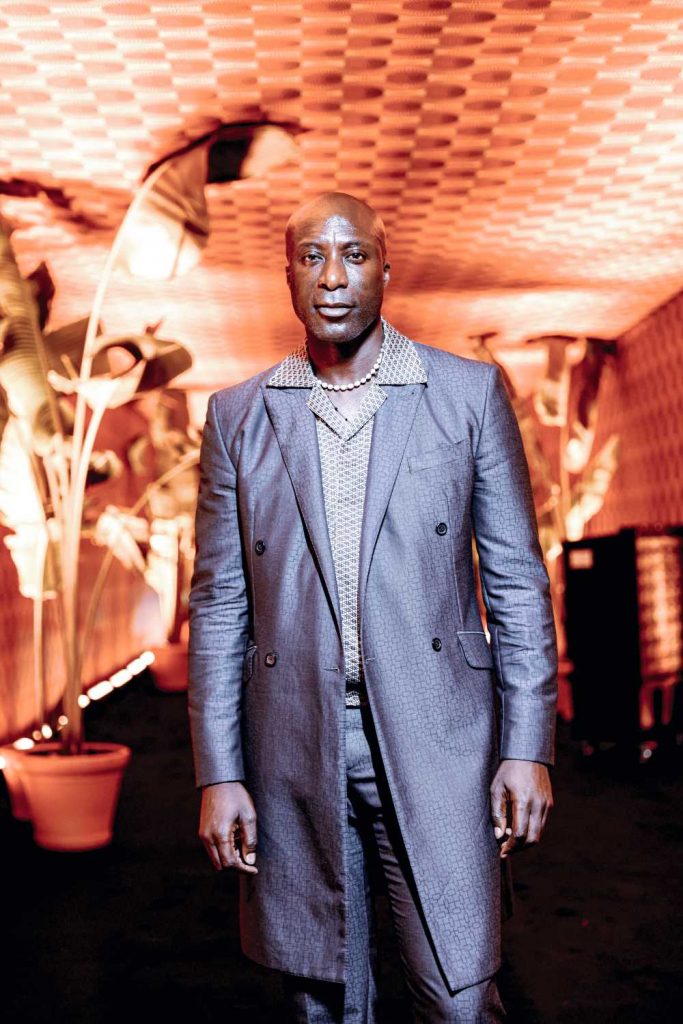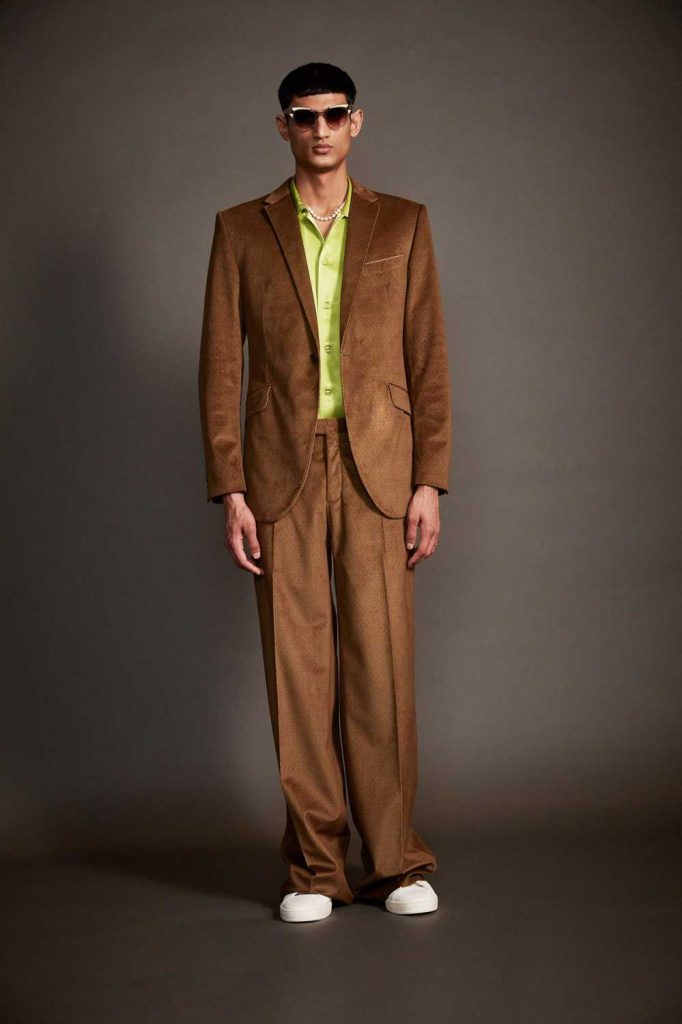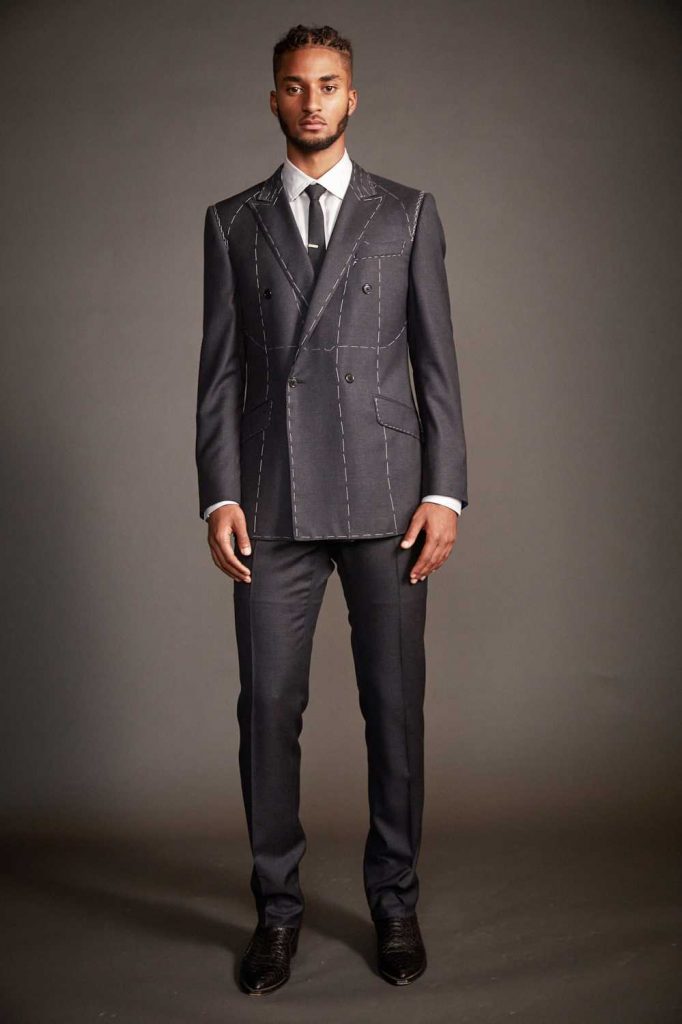I’ve always wanted an Ozwald Boateng suit. Like many people my age (pushing forty) my tastes matured from videogames and rock band t-shirts in the late nineties and early 2000s, around the same time that whispers of an upstart Savile Row tailor named Ozwald Boateng were becoming louder.
After becoming the first tailor ever to stage a catwalk show during Paris Fashion Week in 1994, the Brit of Ghanaian-origin became the youngest tailor to open a store on London’s iconic menswear street, and the first black man to do so. He was a disruptor in Britain’s century-old industry, back when being a ‘disruptor’ was more than just Silicon Valley marketing jargon for smash-and-grab tech start-ups.

Both a staunch advocate of the industry’s traditional values, but also wanting to imbue British tailoring with a more contemporary design aesthetic (highly influenced by the use of colour from his Ghanaian heritage) Boateng helped introduce Savile Row to a new younger clientele. I was one of them.
But it wasn’t just me. Ozwald Boateng was a rockstar. His evolving business and aesthetic brought in countless accolades – including an OBE from Queen Elizabeth II – and a blockbuster client list including Jamie Foxx, Lewis Hamilton and Daniel Day Lewis. “You’ll rarely find me in a suit, but when you do it will be by Ozwald Boateng,” Richard Branson once famously quipped.

But now after nearly 30 years on Savile Row, my chances of finally owning an Ozwald Boateng suit are massively increasing as he unveils plans to bring the brand to the Middle East. Last month ‘THAT Concept Store’, in Dubai’s Mall of the Emirates, began stocking his collections, with the intention to establish a more permanent base soon.
****
Ozwald recently did a show in London, but before that did a show in New York. That was the first time he had shown in New York in 20 years. “It was quite profound, because I chose to do the show the night before the MET Gala. I was told that it was the worse day to pick! I was confident, and the show was a huge success.”
Esquire Middle East’s interview with Ozwald Boateng
ESQ: You’re a veteran of the fashion world now. Do you now instinctively take on more of a mentor status?
Ozwald Boateng: It’s true, I’ve been around for a while, and being self-taught you inherently learn a lot about the way things are and what works and definitely what doesn’t. As much as the business of fashion is one thing, it is also many things. The creative understanding is one point; finding your voice is another; but it is also about what you want it to mean and how you communicate that. I think my longevity comes from consistency. I’ve kept my identity and position, which is very difficult to maintain in the fashion world, particularly as an independent.
ESQ: Is remaining independent something that you would encourage people to do?
OB: I think independence is key when you are trying to understand what the identity of your brand is – the language of your brand. But the reality of it is that now it’s probably easier to remain independent than it ever was before, because of Social Media and e-Commerce – you can go directly to the customer, and have a tighter control on things like stock.

ESQ: You mentioned there being a ‘language’ of your brand. Do you have your own lexicon of terms that you use?
OB: I think it is important to remember that viewpoints are not permanent, but in terms of the language and vocabulary used to define a brand, those remain pretty constant. Once you have a clear idea of your creative language, you always know where the starting position and the ending position is. It’s about developing a system that I can apply to anything from furniture to cars, architecture to clothing. Usually, it is the concept that is greater than the actual product.
ESQ: You took a break a while ago. How did that affect you, and are you happy to be back?
OB: It’s a combination of things. Covid was an interesting experience as I was stuck in London for two years, and I also found the George Floyd situation quite profound. It was then that I remembered that I love creating, I love designing and the time felt right. I’ve always been very instinctive in what I do. I don’t necessarily do stuff because I’ve been told it’s the right thing to do, I do it because it feels right.
ESQ: So it feels like the right time to finally move into the Middle East market?
OB: It is. To start with Dubai is much more established global city now, and the right conversations are being had with regards to the people living here and the strategic partnerships that we have in place.
ESQ: Going back to your previous answer, in terms of this new found motivation, I’m getting the sense that we haven’t seen the best of Ozwald Boateng creatively, yet.
OB: Yeah, absolutely. Absolutely. I’ve experienced a lot. Not only through my own brand, but I was also the Creative Director of Givenchy for a while. But the truth is I have not reached my full creative expression, and now I feel freer and more experienced to embrace that.
ESQ: Why is that?

OB: A lot of the time it is about having the right tools. You could be a great photographer, but if you have the wrong camera or the wrong lighting, suddenly it doesn’t work. I have the tools I need now, and I have never been more excited to work on some of the things I have coming up. I only like to show my creativity when I have something worth saying, and I now have something worth saying.
ESQ: In your opinion, what is the current state of menswear?
OB: It’s quite fascinating, because it’s become so much wider. For the long time you had a spectrum: traditional tailoring at one end, and men’s fashion at the other. I benefited because I operated in the middle of that – combining the two. Now what has happened is that those two ends have gradually combined in the middle of that spectrum, and the ends are more extreme with the rise of feminine expression in menswear.

ESQ: Does that impact you?
OB: I have always had that element in my clothing, but not in an obvious way. There is a masculine beauty to my cut, that when you understand it, is very attractive to the feminine eye. The evolution of menswear allows for my creativity to flourish more because before it wouldn’t have been understood compared to how it would be today. Sure, I can still do a killer black suit, but nothing allows me to showcase what I can really do when it comes to the easing of boundaries on colour and texture.
ESQ: There is less fear now…
OB: Men used to think that they couldn’t wear something, so I spent years, no, decades, mastering the perfect shade that would suit most men. Now, however, the perception that only a particular type of guy can wear a particular type of colour is not correct. So creatively, this period is now my sweet spot. I’m very excited about it, and it also allows me to consider expanding into areas such as leather goods, or interesting furniture collaborations, or hospitality and hotel developments in Africa. Yeah, yeah, my head is full of creativity right now.
